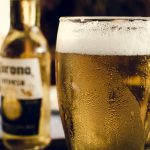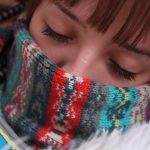Negative Effects of Over-eating on Health
It is generally believed that the more we eat the better. Physicians say that it is necessary to eat heartily to retain health and strength. And when ill, it is necessary to consume much food to regain lost health and strength.
Yes, to some extent, it is true. We need enough food to repair the waste, to perform our work and to furnish heat. Every muscle contraction uses up a little energy. Every breath deprives us of heat and carries away carbon dioxide, the latter being formed by oxidation of tissues in the body. Every minute we lose heat by radiation from the skin. Every thought requires a small amount of food. If we worry, the leak of nervous energy is tremendous, but at the same time we put ourselves in position where we are unable to replenish our stock, for worry ruins digestion. All this expenditure of energy and loss of heat must be made up for by the food intake. Only a small amount of surplus food can be stored in the body. Some fat can be stored as fat. Some starch and sugar can be put aside as either glycogen – animal sugar – or be changed into fat.
How much food is necessary?
Truly speaking, Experience is the only correct guide to food requirements, and each individual has to settle the matter for himself. The human body is not exactly a chemical laboratory, nor is it an engine which can be fed so much fuel with the resultant production of such and such an amount of heat and energy. Some bodies are more efficient than others. It is among human beings as among the lower animals, some require more food than others.
Negative effects of Over-Eating on Health
Overeating ultimately causes diseases. Though, It may take two or three years, or even twenty to thirty years, before the overeating results in serious illness. But the results are certain, and after that, the person can neither use his body nor mind to the best advantage.
- Overeating and Obesity: Overeating bears even larger responsibility in making you obese when compared with reduced physical activity. And when both of these are combined, results can be very devastating.
- The more food that is ingested, the more heat units must be manufactured, and often so much food is taken that the body is compelled to go into the heating business. Then we have fevers.
- This excessive amount of fuel taken into the system in the form of food, wears out the body. As figured by the experts, it gives a result of food need that is at least twice as great as necessary.
- Eructation of gas and gas in the bowels are indications of overeating. More food is taken than can be digested. A part of it ferments and gas is a product of fermentation. A very small amount of gas in the alimentary tract is natural, but when there is belching or rumbling of gas in the intestines it is a sign of indigestion, which may be so mild that the individual is not aware of it, or it may be so bad that he can think of little else. When there is formation of much gas it is always necessary to reduce the food intake, and to give special attention to the mastication of all starch-containing aliments. Also, if starches and sour fruits have been combined habitually, this combination should be given up. Starch digests in an alkaline medium, and if it is taken with much acid by those whose digestive powers are weak, the result is fermentation instead of digestion.
- Overeating brings a feeling of lethargy. It is always advised that you should quit eating before you feel full. If there is a desire to sleep after meals, it means, too much food has been ingested.
- When tiredness possesses us after meals, it means we have eaten so much food. When this happens then the digestive organs require so much blood and there is not enough left for the brain. This is a hint that if we have work or study that requires exceptional clearness of mind, we should eat very moderately or not at all immediately before.
- A bad taste in the mouth is usually an indication of overeating. It comes from the decomposition because of too liberal food intake. If you feel bad taste of water in the morning or at any other time, it indicates overeating. It may be due to a filthy mouth or the use of alcohol.
- Very often, the Heartburn is also due to overeating, and also the hiccough; both come from fermentation of food in the alimentary tract.
- A heavily coated tongue in the morning is also an indication of excessive food intake. If the tongue is of dirty gray color it shows that the owner has been overeating for years. A coated tongue indicates overcrowded nutrition and is nature’s request to reduce the food intake. How much? Enough to clean the tongue. If the coating is chronic it may take several months before the tongue gets clean.
- A muddy skin, perhaps pimples on the skin, is another sign of overeating. It shows that the food intake is so high that the body tries to eliminate much of the waste through the skin. Because of this huge amount of waste removal from the skin, it becomes irritated and then there is inflammation. Many forms of eczema and a great many other skin diseases are caused by an overcrowded nutrition and stomach disorders
- Dull eyes and a greenish shade in the whites of the eyes point toward digestive disturbances due to an oversupply of food. The green color comes from bile thrown into the blood when the liver is overworked. The liver is seldom overtaxed unless the consumption of food is excessive.




Share the Post